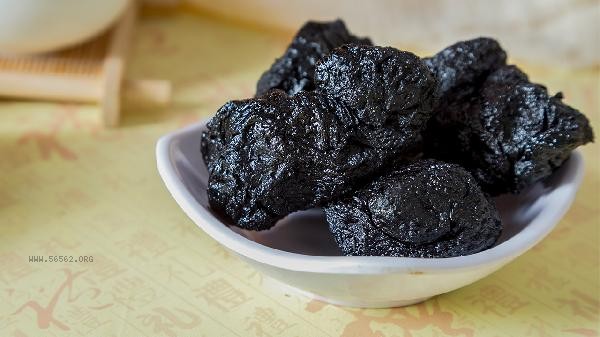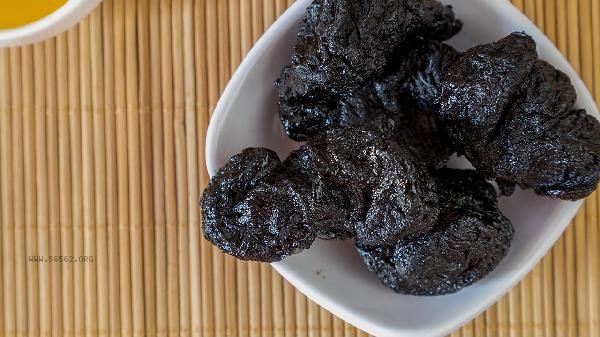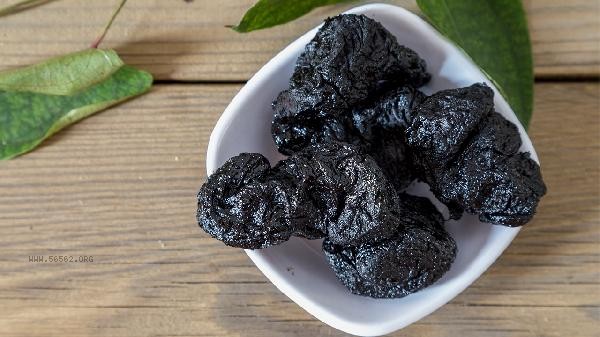Shu Di Huang is not suitable for people with yin deficiency, excessive fire, weak spleen and stomach, qi stagnation, excessive phlegm, unresolved external infections, and allergies. Shu Di Huang is a commonly used traditional Chinese medicine herb for nourishing blood and yin, but it is not suitable for everyone. Specific physical conditions or disease states may worsen symptoms or cause adverse reactions.

1. Individuals with Yin deficiency and excessive heat
Individuals with Yin deficiency and excessive heat constitution often experience symptoms such as restlessness of the five hearts, hot flashes, night sweats, dry mouth and throat. Rehmannia glutinosa is warm in nature and sweet in taste. Although it can nourish yin, its warm and nourishing properties may promote deficiency fire. Such people can use raw rehmannia in combination with antipyretic herbs such as Anemarrhena asphodeloides and Phellodendron amurense, or use traditional Chinese patent medicines and simple preparations such as Anemarrhena rehmanniae pills and Dabuyin pills to recuperate according to the doctor's advice.
Secondly, those with weak spleen and stomach
are prone to obstruction of spleen and stomach function due to the rich and greasy nature of Rehmannia glutinosa. People with weak spleen and stomach may experience digestive symptoms such as bloating, decreased appetite, and loose stools after taking it. It is recommended that this group of people first regulate their spleen and stomach, and can use qi regulating herbs such as sand kernels and tangerine peel, or choose spleen strengthening formulas such as Xiangsha Liujun Pill and Shenling Baizhu Powder.
III. Qi stagnation and phlegm dampness
Patients with excessive phlegm dampness or qi stagnation often exhibit symptoms such as thick and greasy tongue coating, chest tightness, excessive phlegm, and heavy body fatigue. The greasiness of Rehmannia glutinosa may exacerbate phlegm dampness obstruction. In this case, it is necessary to first use phlegm resolving and qi regulating formulas such as Er Chen Tang and Wen Dan Tang to unblock it. After the phlegm dampness is resolved, consider whether to use Rehmannia glutinosa.

In the early stages of external infections such as colds and fever, traditional Chinese medicine treatment mainly focuses on resolving external factors and dispersing pathogens. Rehmannia glutinosa, as a nourishing medicine, may retain pathogenic factors and hinder the surface, delaying the recovery of the disease. It is recommended to adjust and supplement after the external infection has been cured. If necessary, it can be combined with surface clearing drugs such as Yinqiao San and Sangju Yin.
V. Allergic constitution
Some people have allergic reactions to the ingredients contained in Rehmannia glutinosa, manifested as skin itching, rash, or gastrointestinal discomfort. The initial use should be observed from a small dose, and if allergic symptoms occur, it should be stopped immediately. People with severe allergies can choose other nourishing herbs such as goji berries and Ligustrum lucidum as substitutes.
It is recommended to consult a traditional Chinese medicine practitioner for diagnosis and treatment before using Rehmannia glutinosa to avoid self abuse. In daily life, moderate exercise can be combined to promote the circulation of qi and blood. The diet should be light and easy to digest, and avoid taking it with radish or strong tea to affect the efficacy of the medicine. If discomfort symptoms occur, adjust the medication plan in a timely manner and conduct allergen testing if necessary.









Comments (0)
Leave a Comment
No comments yet
Be the first to share your thoughts!